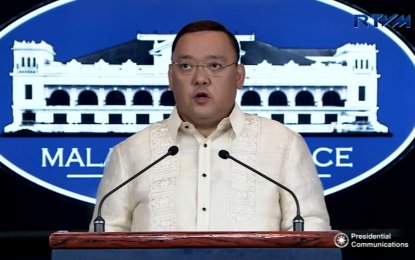Headline
Palace expects 2019 nat’l budget to be passed on time

Under this system, Roque said the government would have 12 months to obligate and 18 months to disburse its budget. (PCOO FILE PHOTO)
MANILA — Malacañang said Thursday it expects the proposed 2019 national budget of PHP3.757 trillion to be passed on time and signed by President Rodrigo Duterte before the end of the year.
The optimism came after the House of Representatives and the Executive Department have finally agreed on a transitory cash-based budgeting system.
“Per the Department of Budget and Management (DBM), they, together with Congress, have agreed to a transitory cash-based system,” Presidential Spokesperson Harry Roque said in a press statement.
Under this system, Roque said the government would have 12 months to obligate and 18 months to disburse its budget.
Budget Secretary Benjamin Diokno said this means extending the payment period for projects to six months to June 2020, instead of the initial proposal of only three months or until March 2020, since 2019 is an election year.
Roque, meanwhile, said the DBM shall be disclosing the full details of this transitory cash-based system “in due time” but did not give further details.
Earlier, Roque reiterated the Executive Department’s preference for cash-based budgeting.
“We’re not about to give in. The cash transaction will ensure that only those projects that can actually be implemented will be included in the budget,” he said.
On August 11, the House temporarily suspended budget hearings amid lawmakers’ opposition to the DBM’s proposed cash-based budgeting system, saying it will negatively impact projects. However, the House resumed hearings on August 28.
In an annual cash-based budget, contracts intended to be implemented for the fiscal year should be fully delivered by the end of the year.
On the other hand, a multi-year obligation-based budgeting system allows the government to enter into a contract or “obligate funds” without requiring the actual delivery of goods and services within the year.
Some agencies were given budget under the proposed 2019 national budget, which Diokno said, was due to underspending in past years based on the findings by the Commission on Audit.
Diokno said a “supplemental budget is a possibility but not a certainty,” noting there should be an “overwhelming justification” for this purpose.
He said Malacañang must first identify the funding source for a supplemental budget, which can be disbursed in December if funds are really available, but it will take effect only next year.
“We cannot just pass the supplemental budget to Congress without telling them the source of funding. So if Congress will pass all tax measures, then there’s a possibility,” Diokno said.
“Let them do the tax reform measures first, so we will have a basis for a supplemental budget,” he added.





















